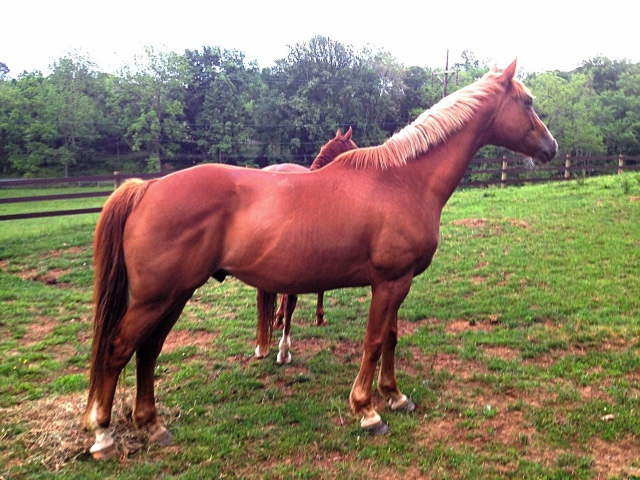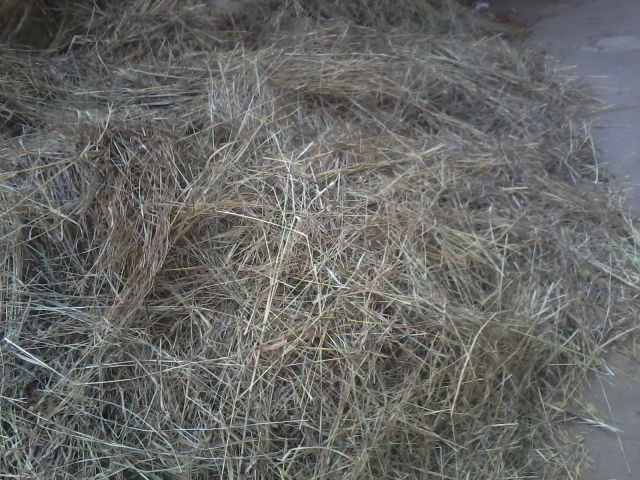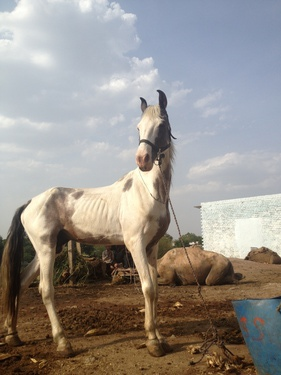QuestionHello, we have a 15 year old Haflinger who has always had no health issues whatsoever. Very easy keeper and very healthy. He grows an extremely thick winter coat each year, and this year is no exception. But this time, we've noticed that for the past month, he's been very itchy by his backend. He is let out to pasture all day and has quite a bit of land to graze on, but we bring him in to the barn at night and literally the first thing he does is go to the post and rub his back end against it. His tail is getting frayed from it. We've examined him, and noticed under all that thick winter coat is dry, scaly skin that starts at the top of his tail and works it's way back for a short ways. It is not in his anal area- just on top of his tail- along his spine for only about 8 inches or so. We worm him regularly, he is up to date on shots and negative for Coggins. The only change for him this past year (which is a big change) is that we moved from Massachusetts to Virginia during the early summer. He now lives in an old hay barn that we have been reconstructing, along with our 7 dairy goats. He eats a soup can of sweet feed (only during the winter months), and hay in the evening. Other than that, he has all the grass a horse could eat. Do you have any idea what this itching is all about, and what we can do about it? my husband rubbed diatamaceous earth everywhere he saw the scaly skin, but we'd love to know if there's more we can do. I do have a lime sulfur dip available here on the farm, if needed... Thank you!
AnswerHi Rebecca,
Thank you for your question. I think perhaps this is something you should have your vet take a look at, as he/she may better be able to help you looking at the condition first hand. Horses may rub their tailhead in response to a heavy worm load. You've indicated your horse has been wormed regularly, but perhaps a fecal test could help determine if you are using the right wormer for the worm load your horse has. There are also a number of skin conditions that may cause your horse to itch including fungus, rain rot, insect bites and the like. Again, this is where a vet's first hand examination will be useful...especially since each condition requires a different approach to treatment.
Because the skin condition is not wide spread, it is doubtful that diet plays a significant role in his itching. Feeding oil or feeds rich in Omega 3 fatty acids can help relieve inflammation and itching. Flax oil or milled flax seed would work best, or soya oil if flax is not available. Avoid corn oil as it will only increase the inflammation and itching.
Good luck, I hope you're able to pinpoint the problem.
Thanks, Corlena

 Feeding
Question
Cisco
I have a 17.2 Dutch warmblood who
Feeding
Question
Cisco
I have a 17.2 Dutch warmblood who
 HELP WITH MY HORSE UCLERS PLEASE!!!
Question
Prince Charlie Horse
Hello! I am trying
HELP WITH MY HORSE UCLERS PLEASE!!!
Question
Prince Charlie Horse
Hello! I am trying
 clover hay good in fiber or not
Question
kancha hay
hello maam. is clover hay ri
clover hay good in fiber or not
Question
kancha hay
hello maam. is clover hay ri
 raw milk for under developed baby horses
Question
under developed
hello maam. top trainer
raw milk for under developed baby horses
Question
under developed
hello maam. top trainer
 improving body condition
Question
horse
hello maam, how can i improve the
improving body condition
Question
horse
hello maam, how can i improve the